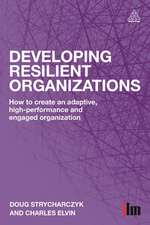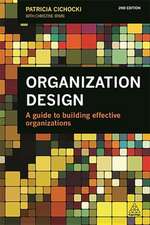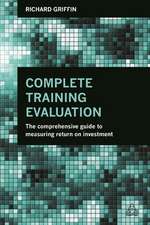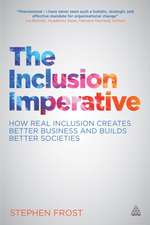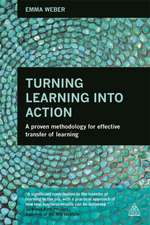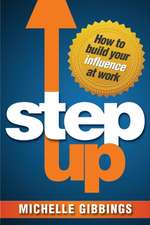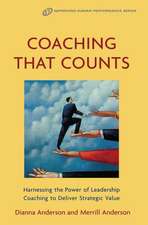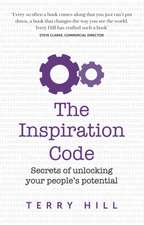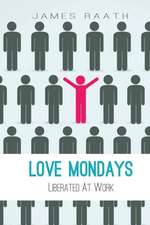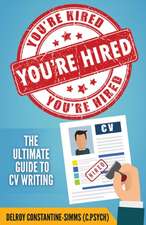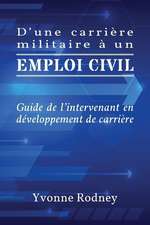Organizational Behaviour – People, Process, Work and Human Resource Management
Autor Stephen J Perkins, Raisa Arvinen–muondoen Limba Engleză Paperback – 2 ian 2013
With special focus on intercultural and cross cultural perspectives, this collection seeks to bridge the gap between organizational behavior and HRM that are often treated separately. Ideal for students of OB, HRM and Business, Organizational Behaviour covers topics such as: performance management, motivation, leadership, talent management, politics and conflict, change management, diversity and creativity.
Through a critical analysis of existing literature and case studies, the contributors examine the role of corporate governance in shaping the scope of managerial choices within organizations and the ethical dimensions of organizational behavior and global employment standards. Grounded in observable experience, Organizational Behaviour allows students to get beyond the abstract to understand OB in practice.
| Toate formatele și edițiile | Preț | Express |
|---|---|---|
| Paperback (1) | 435.56 lei 6-8 săpt. | |
| Kogan Page – 2 ian 2013 | 435.56 lei 6-8 săpt. | |
| Hardback (1) | 1205.20 lei 6-8 săpt. | |
| Kogan Page – 2 ian 2021 | 1205.20 lei 6-8 săpt. |
Preț: 435.56 lei
Nou
Puncte Express: 653
Preț estimativ în valută:
83.36€ • 86.70$ • 68.81£
83.36€ • 86.70$ • 68.81£
Carte tipărită la comandă
Livrare economică 14-28 aprilie
Preluare comenzi: 021 569.72.76
Specificații
ISBN-13: 9780749463601
ISBN-10: 0749463600
Pagini: 360
Ilustrații: Illustrations
Dimensiuni: 156 x 233 x 26 mm
Greutate: 0.54 kg
Editura: Kogan Page
ISBN-10: 0749463600
Pagini: 360
Ilustrații: Illustrations
Dimensiuni: 156 x 233 x 26 mm
Greutate: 0.54 kg
Editura: Kogan Page
Cuprins
Contributors
Part One: Introduction
Introduction
Stephen J Perkins and Raisa Arvinen-Muondo
Learning objectives
Managing others to a purpose
How did OB get onto the management curriculum?
Definition of OB
Definition of HRM
Overview of the chapters to follow
Conclusion
Key learning points and conclusions
Discussion questions
Part Two: Individuals at work under an employment relationship
01 Managing diverse identities at work
Janice Johnson and Christina Schwabenland
Learning objectives
Introduction
Key concepts and debates in diversity management
Case study and discussion questions
Key concepts and debates – summary
Processes of identity formation at work
Processes of identity formation – summary
Diversity in a global context
Key learning points and conclusions
Case study and discussion questions
02 Perception, making decisions and people management
Raisa Arvinen-Muondo
Learning objectives
Introduction
Social perception and cultural perspectives
Perception
Common errors of perception
Decision making
Implications for HR practice and people management
Key learning points and conclusions
Case study and discussion questions
03 Motivation at work: engagement and facilitation
Nahid Rozalin
Learning objectives
Introduction
Employee motivation
Historical perspectives of motivation
Content theories of motivation
Process theories of motivation
Intrinsic and extrinsic motivation and the individual
Motivation and HRM: the psychological contract and employee engagement
Key learning points and conclusions
Case study and discussion questions
Part Three: Employing human resources to work together for a purpose
04 Managing performance
Caroline Bolam and Sarah Jones
Learning objectives
Introduction
Performance and control
Performance management systems
Managing performance in practice
Key learning points and conclusions
Discussion questions
Case study and discussion questions
05 Leadership, communication and organizational effectiveness
Linda Holbeche
Learning objectives
Introduction
Why is leadership so topical?
What is leadership?
Categories of leadership theory
Critical management scholarship
New approaches to leadership
Discussion questions
Key learning points and conclusions
Case study and discussion questions
06 Talent management
Raisa Arvinen-Muondo and Qi Wei
Learning objectives
Introduction
Talent management versus HRM
The OB perspective
Talent identification
Strategic talent management
Emerging issues in managing talnt
Key learning points and conclusions
Case study and discussion questions
Part Four: Shifting contexts for organizational behaviour
07 Conflict, power and politics
Philip Davies and Rod Smith
Learning objectives
Introduction
Definitions – power, politics and conflict
Main arguments in the literature
Politics
Power
Conflict
Difference
Possibility of competitions degenerating into conflict
Key learning points and conclusions
Case study and discussion questions
08 Organizational culture
Eliot Lloyd
Learning objectives
Introduction
Defining organizational culture
Interpretations of organizational culture
Organizational culture and performance
The development of culture
Perspectives on the divisions of culture
Managing organizational culture
The role of recruitment and selection in organizational culture
Key learning points and conclusions
Discussion questions
Case study and discussion questions
09 Managing organizational change
Faten Baddar Al-Husan and Konstantinos Kakavelakis
Learning objectives
Introduction
Drivers and triggers of change
Different types of change
Resistance to change
The change agent
The role of HR in change management
Key learning points and conclusions
Case study and discussion questions
10 Creativity, innovation and the management of knowledge
Pauline Loewenberger
Learning objectives
Introduction
Creativity and innovation
Organizational learning and knowledge management
Implications for HRM and HRD
Key learning points and conclusions
Discussion questions
Case study and discussion questions
Part Five: Summation and reflection
11 Coda: HRM and OB – accenting the social
Stephen J Perkins and Raisa Arvinen-Muondo
Glossary
References
Notă biografică
Stephen J. Perkins is a professor at London Metropolitan University and a visiting research fellow at Cass Business School. He has held senior management posts during internationalization initiatives and spent a period as a management consultant.
Raisa Arvinen-Muondo is a PhD researcher and research assistant within the Department of Strategy and Human Resource Management, University of Bedfordshire.

